by Kelly Ferjutz
Special to ClevelandClassical.com
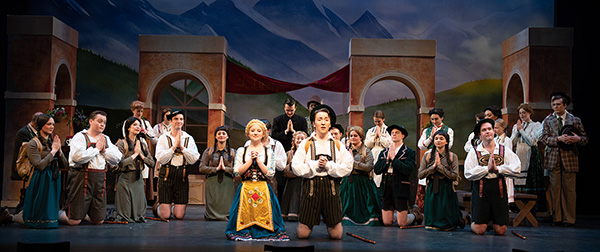
Professor Walter Lessing, school music master in the beautiful little town of Edendorf aspires to be a published composer. Early one morning, he hears a bird singing outside his window and promptly dashes to the piano to write down the melody. He shows the music to Karl Reder, the boyfriend of Sieglinde, Lessing’s daughter. Karl produces lovely lyrics, and the decision is made to hike to the office of Lessing’s publisher, Ernst Weber, in Munich.
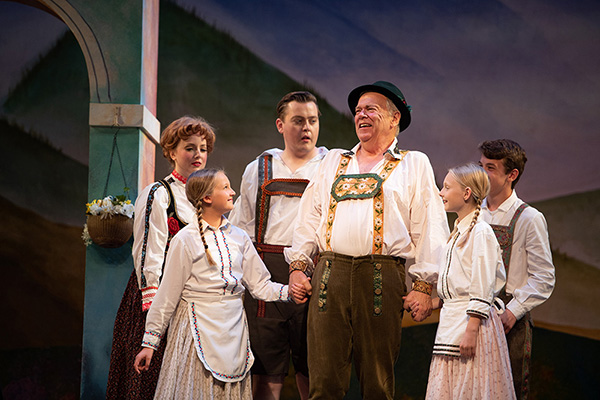
Once there, however, we enter the screwball comedy scenes, all of which are important to advance the entertaining plot line. Weber is very, very busy, trying out a new song written for the reigning chanteuse of the area, Frieda Hatzfeld, by the star playwright who is also her lover, Bruno Mahler (no relation to Gustav). Weber’s secretary, Marthe, bustles in and around trying to maintain order, but it’s a nearly useless task.
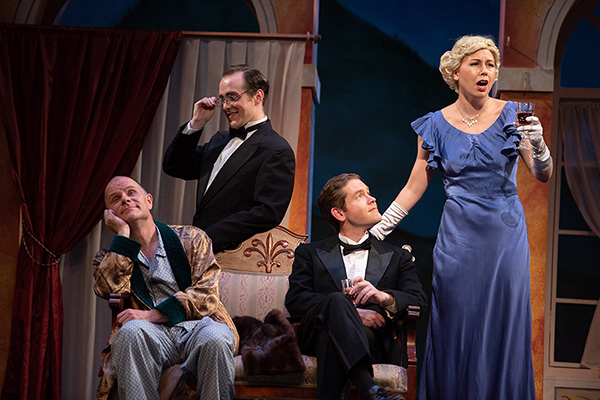
Of course, in an operetta, no really good reason is ever required for a change of scene, and here we have a real doozy All of the above personnel go off for the day to the local zoo. Bruno is seriously pursuing Sieglinde, while Frieda is pursuing Karl. Furthermore, Frieda is going to Berlin to appear in a film, leaving Weber and Mahler to pick up the pieces. They propose Sieglinde as the replacement. She does have a lovely voice, but that’s about all she can provide for the demands of a career on the stage.
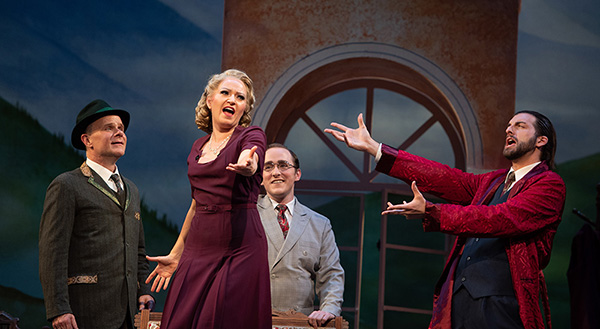
Ted Christopher is a delight as Professor Lessing, even if at times he’s a bit of the absent-minded professor. Sadie Spivey is exactly as you would imagine his daughter Sadie to be, with a gorgeous blonde hair-do complete with braid wrapped around her head. She is a total contrast to the equally blond, but more mature and provocative Frieda of Tanya Roberts. Karl is portrayed by Adam Wells, while Brad Baron effectively chews up the scenery as Bruno. Spencer Reese is not only the choreographer, but also the piano-playing publisher Ernst Weber. His secretary, Marthe, is the suitably professional Hilary Koolhoven.
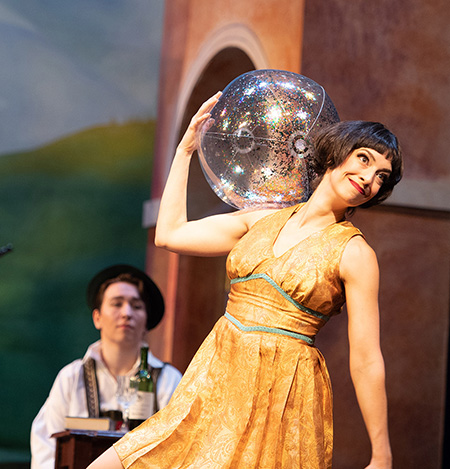
Steven Daigle is stage director, while Wilson Southerland conducts the sparkling OLO Orchestra. The versatile and colorful set is by Kiah Kayser, with lighting by Brittany Shemuga, and costumes by Anne Medlock. Sound was designed by Sarah Calvert.

Music in the Air runs in repertoire through August 8 in Freedlander Theatre on the campus of The College of Wooster. Tickets are available online.
Published on ClevelandClassical.com July 17, 2019.
Click here for a printable copy of this article



